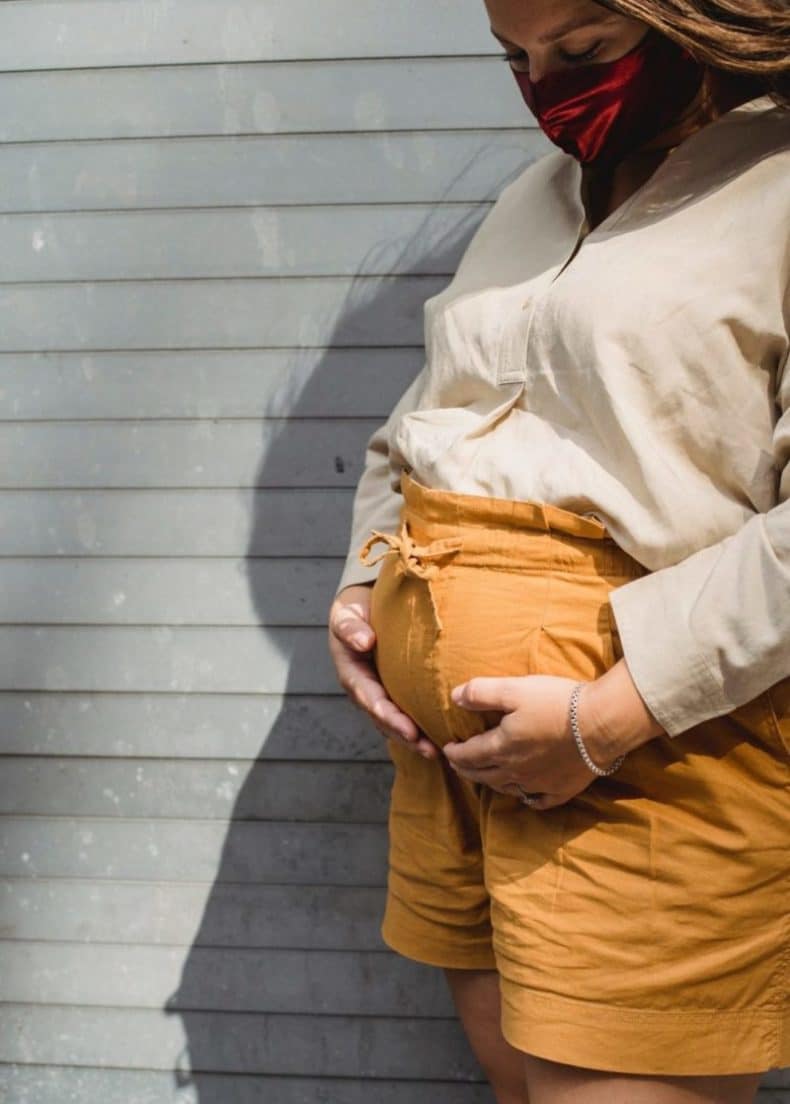COVID-19 and your fertility
Effects of Corona and the COVID-19 vaccination
In addition to the the reduction of our social contacts and a general negative mood, another fear driving couples and single women who want to have children, is the question of the effects of Corona and the Covid-19 vaccination on fertility and pregnancy. Many couples worry. “How will possible Corona affect our family planning?” and “What risks are we taking when we vaccinate?”.

Should I get vaccinated if I want to get pregnant soon?
The answer is yes. The Standing Committee on Vaccination (STIKO) advises women who want to have children to be vaccinated against Covid-19 even before conception. The vaccination then already protects as soon as the pregnancy has occurred. It has been scientifically proven that the mother’s antibodies are transferred to the fetus. However, it is not yet clear whether this provides clinically relevant protection for the baby. What is certain however, is that there is no increased incidence of serious side effects following Covid-vaccination during pregnancy.
According to the Robert Koch Institute (RKI), people under 30 years of age, including pregnant women and women who wish to have children, should only be vaccinated with the BionTech/Pfizer vaccine. This also applies to the so-called booster vaccination, which is also recommended for pregnant women and women who wish to become pregnant.
Vaccination against Covid therefore protects pregnant women in particular, as they are among the risk groups for severe courses of the disease. If this is the case with the mother, the newborn also has a higher risk of being treated in the neonatal intensive care unit, according to the RKI. Premature births also occurred more frequently among mothers with corona than among uninfected pregnant women.
To keep the risk for expecting mothers as low as possible, the STIKO also recommends vaccinating their contacts, such as their partners.
Can the Corona vaccination cause infertility?
The rumor persists on the Internet and causes fear among couples and single mothers who want to have children. But does the Covid-19 vaccination really have a negative effect on sperm in men? A team of researchers from the University of Miami Miller School of Medicine recently asked themselves this question. The team studied 45 healthy male volunteers between the ages of 18 and 35. The volunteers gave a total of two semen samples, once before the first dose of the vaccine from BionTech/Pfizer or Moderna, and once 70 days after administration following the second vaccination. The scientists examined the sperm and found no effect of the vaccines on male fertility.
Female fertility is also not affected by the vaccines, according to the Paul Ehrlich Institute (PEI). In addition, a study published by Oxford University Press examined the relationship between Covid-19 and oocyte reserve, which is measured by AMH levels. The result: AMH levels remained unchanged for at least three months after vaccination.
Does Covid 19 vaccination have any effects on the female cycle?
Another question that particularly concerns women who want to have children is whether the vaccinations affect the female cycle. Knowing your individual cycle is, so to speak, the 1x1 if you want to get pregnant soon. Therefore, hormonal fluctuations and irritations of the cycle by the Corona vaccination would be rather undesirable. In fact, women more often report in the social media that the vaccination has changed their cycle. In principle, experts see this possibility as normal, since the female cycle is extremely sensitive. Even the smallest psychological factors are enough to change it. Especially with regard to the emotional topic of “Covid”, it is therefore possible that shifts in your cycle may occur. However, according to current knowledge, these seem to be completely harmless and only of short duration.
Thus, Dr. Laura Bernards, senior physician at the Clinic for Gynecology and Obstetrics of the Helios Klinikum Krefeld, points out the special focus under which the Corona vaccination and possible side effects are typical.
“Currently, there is increased attention because never before have so many adults been vaccinated at the same time. It’s likely that the cycle has also shifted before in some women after vaccination, but not much attention was paid to it.” Therefore, the senior physician said, cycle shifts after vaccination would be fine and not a cause for concern.
For couples and single women who want to start their family planning, this means it is essential to find out which cycle phase you are in.
About Fertilly
At Fertilly, we have made it our mission to accompany couples (homosexual and heterosexual) and singles on the way to fulfilling their child wish. In doing so, it is important to us to create transparency in the area of fertility services, to provide information and knowledge on the topics of pregnancy and fertility and to help you to find the most suitable Fertility Center. Through cooperation with first-class Fertility Centres and clinics in Europe, enquiries about Fertilly are given preferential treatment. This means that our patients avoid the usually long waiting times and get appointments more quickly.
If you would like more information about Fertility Centers, success rates and prices, please contact us using this questionnaire. We will advise you free of charge and without any obligation.
-
Answer the first questions in the online form in order to book an appointment. This way we can better address your needs during the conversation.
-
We will find the best contact person for your individual needs. Schedule 20 minutes for the consultation.
-
We will introduce you to the right fertility clinic from our network, make an appointment and accompany you until your wish for a child is fulfilled.










